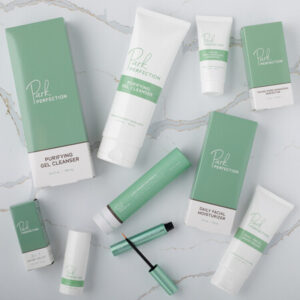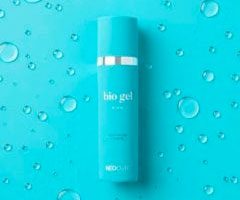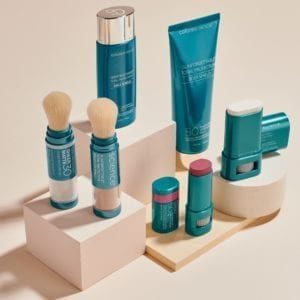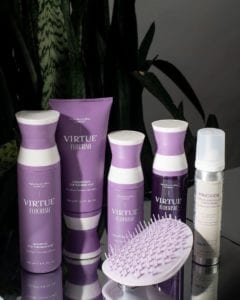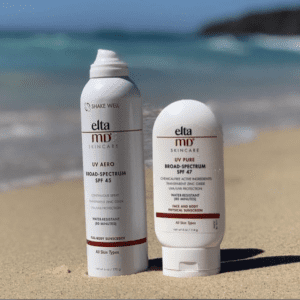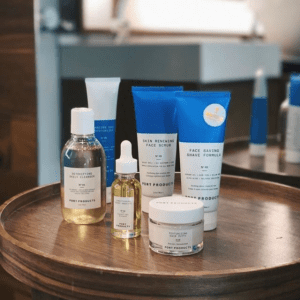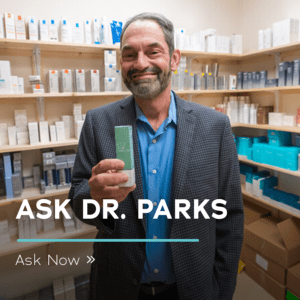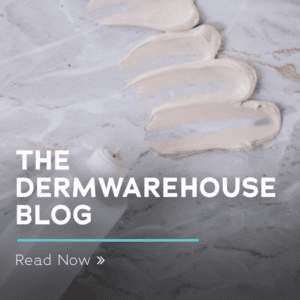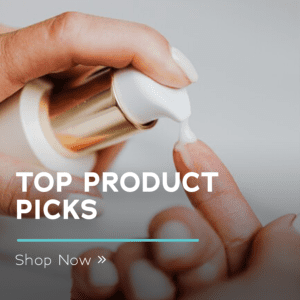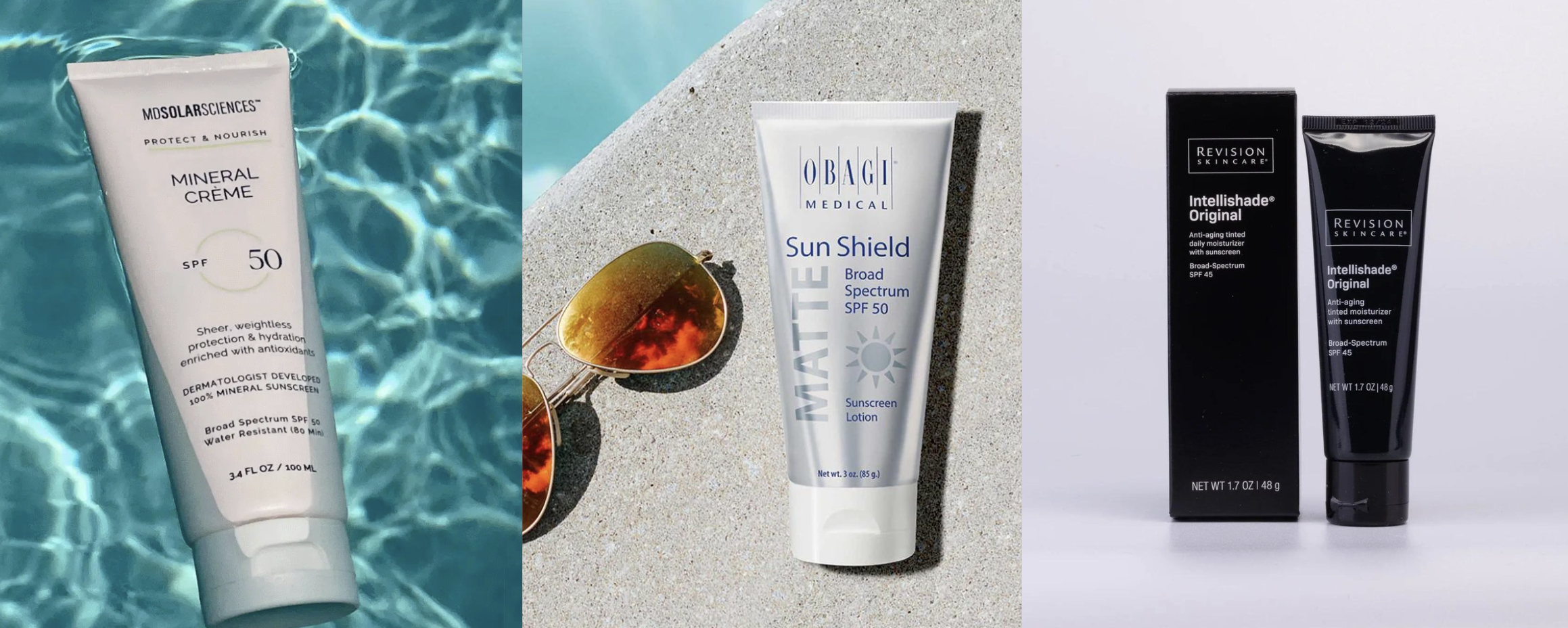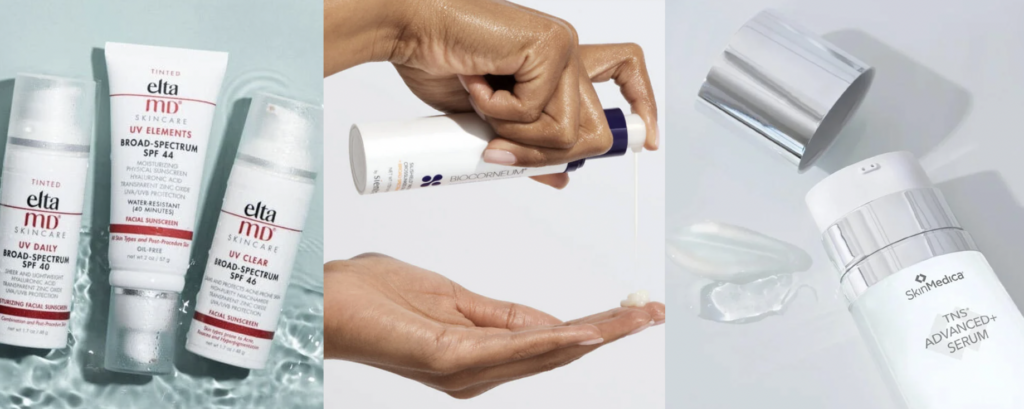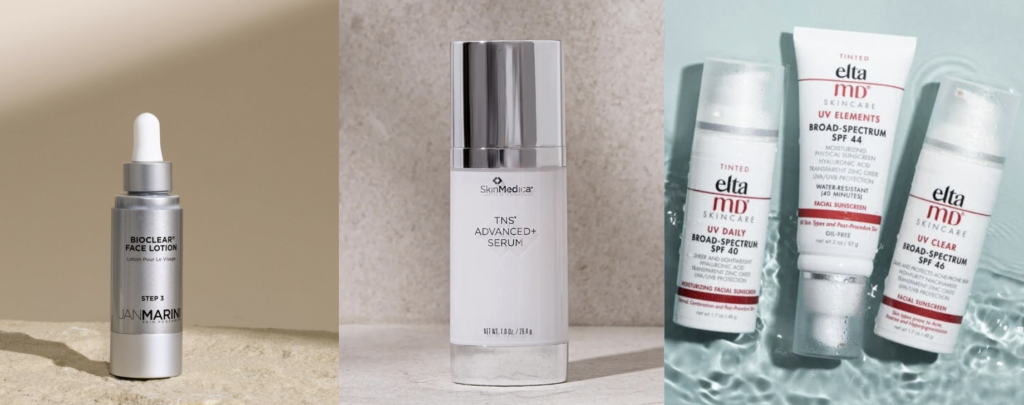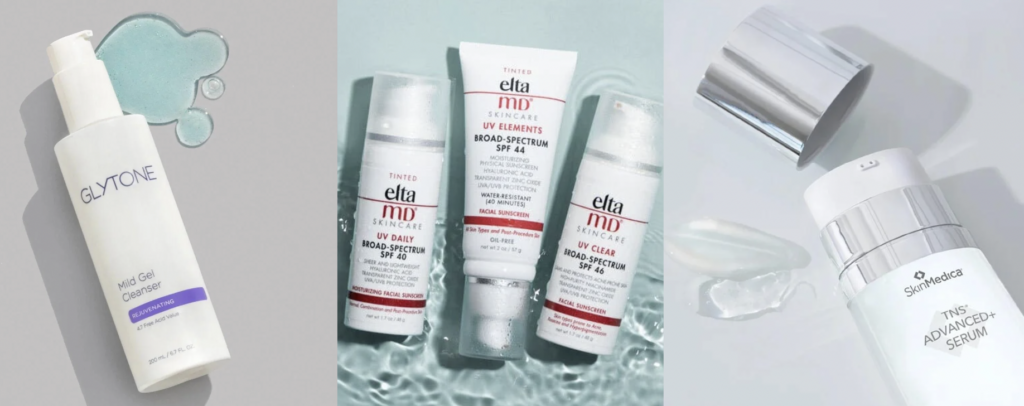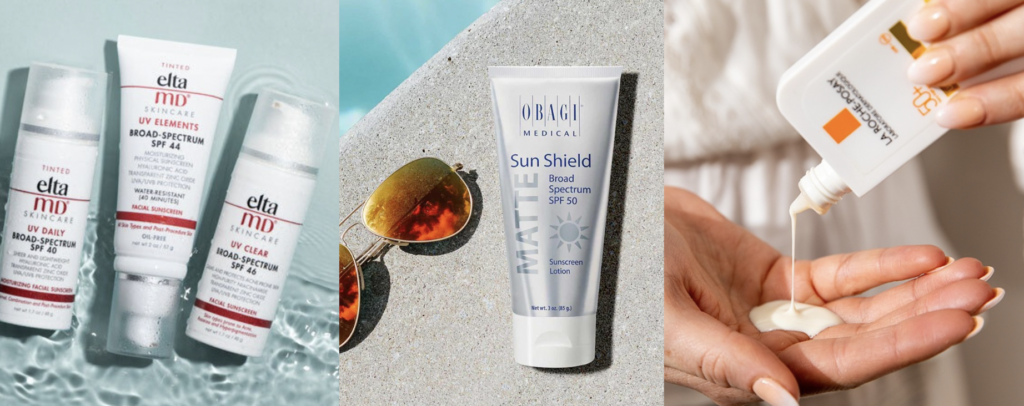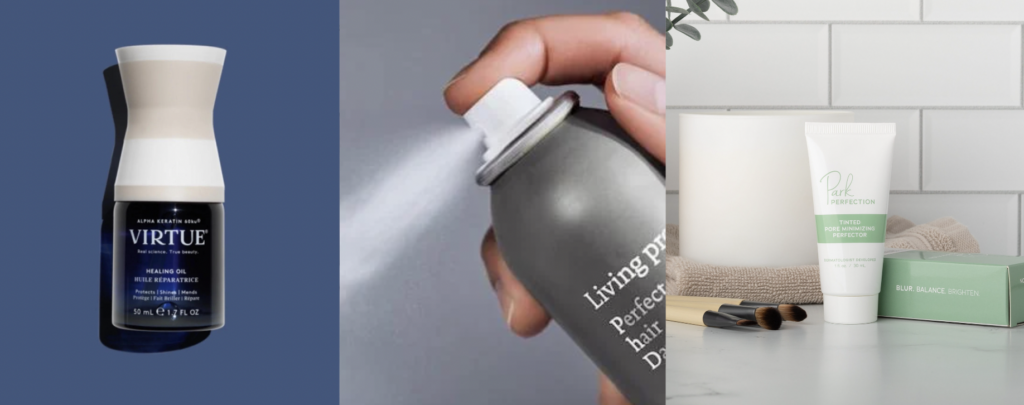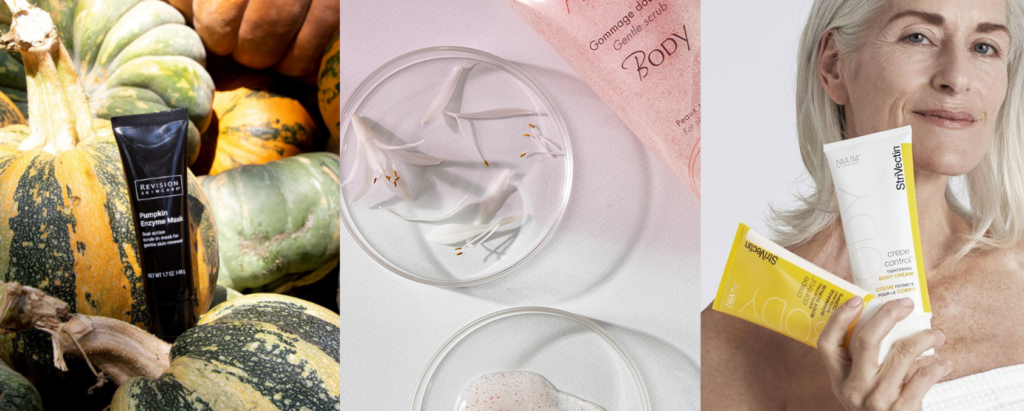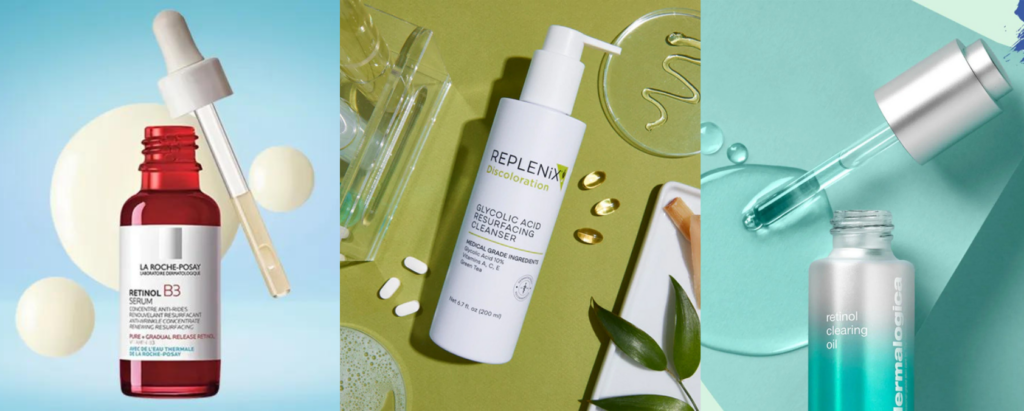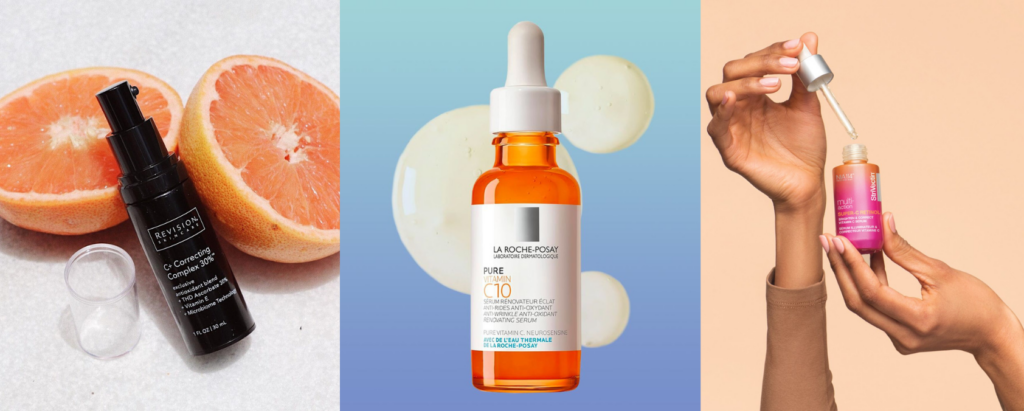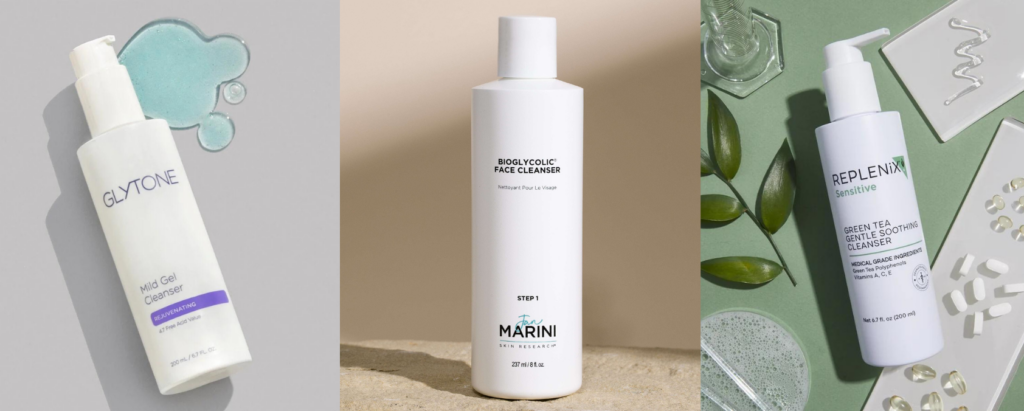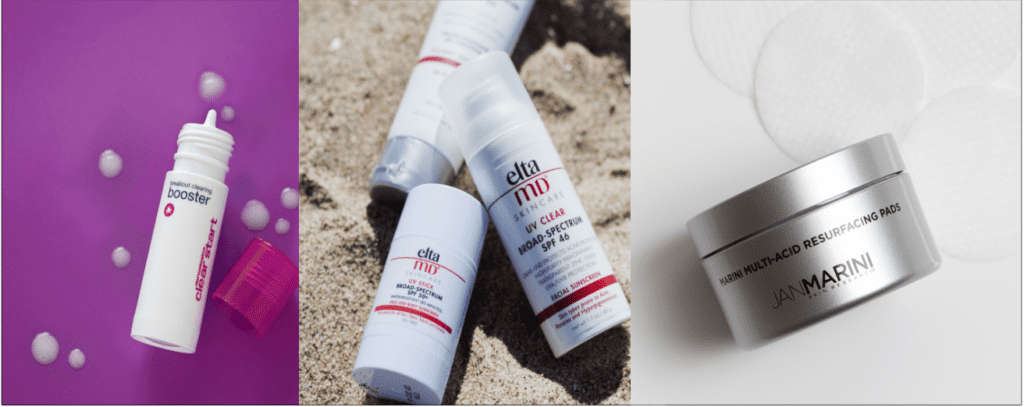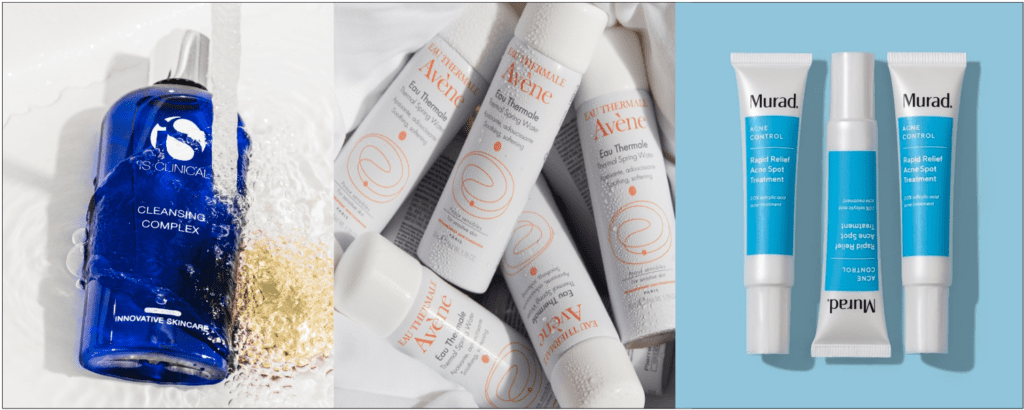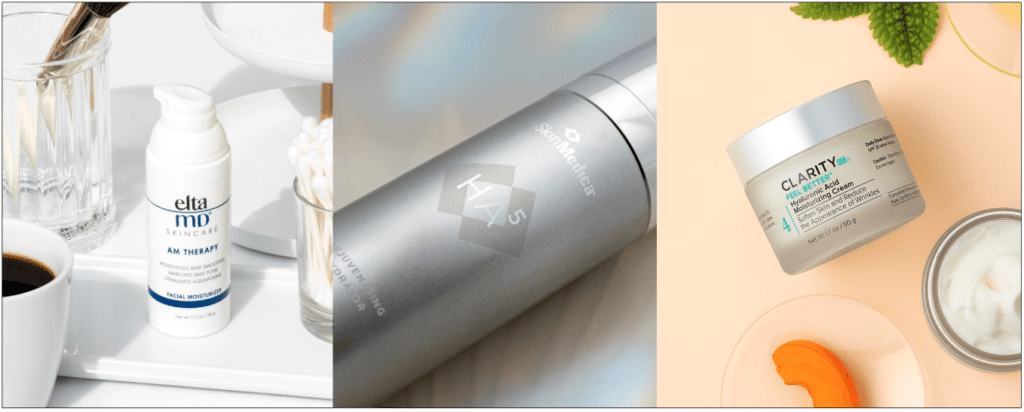While it’s true that not all skincare routines should look the same, some products should be staples in any routine. Sunscreen is one of those products, especially for anyone with skin conditions that may get worse with exposure to harmful UV radiation. If you have rosacea, you know how tricky it can be to manage. One of the most frequent questions that come up is whether or not to use SPF on rosacea-prone skin. The short answer is yes, you should use SPF if you have rosacea, but we’ll help you understand why its important and what SPFs are the best sunscreen for rosacea prone skin.
What Is Rosacea?
“Rosacea is a common, chronic skin condition that primarily affects the face. It causes redness, visible blood vessels, and sometimes small, red, pus-filled bumps,” says Dr. Parks, a board-certified dermatologist and the founder of DermWarehouse. It isn’t easy to diagnose what causes rosacea—in fact, the causes are not really known, though genetics, environment, and immune responses are known to contribute to rosacea flare ups.
Related Blog Post: Best Sunscreens for Acne Prone Skin
There are four types of rosacea, which each have their own unique symptoms that can make it easier to diagnose. Here are the four types and their most common characteristics and symptoms:
- Erythematotelangiectatic rosacea (ETR) – chronic redness, stinging and burning, with visible blood vessels and periods of flushing and blushing.
- Papulopustular rosacea – red bumps with episodes of inflammation and breakouts, pus-filled bumps, and redness in the middle of the face.
- Phymatous rosacea – thickening of the skin by the nose, enlarged pores around the face.
- Ocular rosacea – redness and dryness near the eyes and eye lids, burning near the eyes, sensitivity to light.
Each type of rosacea has its own causes. For example, ETR is often caused or worsened by external environmental factors like sun exposure, changes in the weather, stress, spicy foods, or alcohol. Phymatous rosacea on the other hand is found to be more often caused by genetics or prolonged, untreated rosacea. “Identifying the type of rosacea you experience is going to be the most important step you take in treating it, though anyone experiencing the symptoms of rosacea should take steps like wearing SPF on a regular basis to prevent their symptoms from worsening,” says Dr. Parks.
Using SPF on Rosacea
“Rosacea sufferers often notice that their condition flares up after being in the sun,” says Dr. Parks. “UV radiation from the sun can damage the skin and exacerbate symptoms of rosacea. It increases inflammation and causes the blood vessels in your skin to dilate, leading to more redness and discomfort,” he says. By using SPF, you can protect your skin from these harmful effects and reduce the frequency and severity of flare-ups.
Another reason to lather on the SPF if you have rosacea is to prevent the increased sensitivity that comes from sun exposure. “People with rosacea typically have more sensitive skin,” says Dr. Parks. “This makes it even more important to shield your skin from the sun’s harsh rays. Sunburn or even minor sun exposure can lead to significant irritation and discomfort. An effective SPF can serve as a protective barrier, preventing UV rays from penetrating the skin and causing harm,” he says.
Prolonged exposure to UV rays can cause long-term skin damage, such as premature aging in the form of fine lines and wrinkles, and an increased risk of skin cancer. “Rosacea already makes your skin more vulnerable to the sensitivity that comes with being in the sun, so protecting it with SPF is even more important for long-term skin health,” says Stefanie Parks, the CEO of DermWarhouse. “Regular use of SPF can keep your skin looking youthful and radiant while protecting it from more extreme health issues later on,” she says.
Best SPF Ingredients for Rosacea
There are two main types of sunscreens: physical (also called mineral) and chemical. Physical sunscreens contain active mineral ingredients like zinc oxide or titanium dioxide. These minerals sit on top of the skin and reflect UV rays. Chemical sunscreens, on the other hand, absorb UV rays and convert them into heat, which is then released from the skin.
“For people with rosacea, physical sunscreens are generally preferred,” says Dr. Parks. “Physical SPFs are less likely to irritate sensitive skin because they do not absorb into the skin. Instead, they form a protective layer on top. Zinc oxide, in particular, has anti-inflammatory properties, which can be beneficial for calming rosacea-prone skin,” he says.
Avoid SPF products with alcohol or fragrance, as those ingredients can often irritate the skin and trigger or worsen rosacea symptoms. “Look for SPFs that are designed for sensitive skin types, as those will often come without unwanted ingredients that can worsen rosacea,” says Dr. Parks.
Related Blog Post: Why Is My Skin Suddenly Sensitive?
Best Sunscreens for Rosacea
- Elta MD UV Clear Broad Spectrum SPF 46 – This is a great sunscreen for rosacea, since it was formulated without added ingredients that can worsen sensitivity. This is one of our most popular SPF products at DermWarehouse because it blends easily into the skin and is safe for use on all skin types.
- Elta MD UV Phyiscal Tinted Broad Spectrum SPF 41 – This popular SPF is great for replacing your summer foundation with a tinted SPF that can protect your skin while giving your complexion a smoothing effect.
- Elta MD UV Sport Broad Spectrum SPF – Elta MD SPFs are some of the most popular products available through DermWarehouse, and this one is no exception. This is a great SPF for being active in the sun.
- Revision Skincare Intellishade Original SPF 45 – This hydrating SPF can nourish your skin barrier while providing protection from UV exposure. The soothing ingredients make it a great sunscreen for rosacea.
- Jan Marini Antoxidant Daily Face Protectant SPF 33 – This antioxidant-packed SPF protects the skin from harmful free radicals while shielding it from harmful UV radiation. It also contains hyaluronic acid to nourish and hydrate the skin while protecting it.
- MD Solar Sciences Mineral Creme SPF 50 – This is a great sunscreen for rosacea because it contains gentle ingredients that won’t irritate the skin.
Related Blog Post: What Do Antioxidants Do For Skin?
Rosacea can make skincare seem difficult, especially when it comes to finding products that will nourish and protect it without triggering more symptoms and sensitivity. If you have rosacea, these sunscreens are great options for protecting your skin from harmful UVA/UVB radiation that can often worsen your symptoms.

